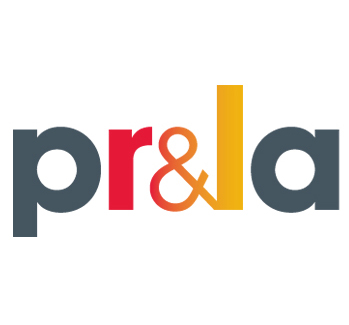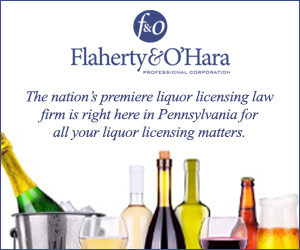What made you want to run for office?
I was in the private sector and did a lot of traveling on business. When I came home to the community where I grew up, I saw a lot of circumstances that I was shocked to see happening in my neighborhood. There was a significant increase in drug dealing, there was the terrible murder of Marcus Yates, a young boy in my neighborhood, and a series of troubling events and changes in my area that motivated me to run.
What makes Philadelphia uniquely different from the rest of the state? How is that good? How is that bad?
Philadelphia’s size makes it uniquely different from the rest of the state. It’s such a large county with such a diverse population. You have very wealthy people and very impoverished people, different ethnic and religious groups, different sexual orientations and family structures. Philadelphia’s diversity is a great thing and a tremendous asset. You can explore different types of values, interact with different people and get a much broader understanding of human beings. One thing that makes it different—not necessarily in a bad way but certainly different from many other parts of Pennsylvania—is that Philadelphia’s experience of the outdoors is captured in its parks. Other parts of the state have a lot of farming and agricultural communities, and that is a big part of what Pennsylvania represents. That is a big difference between Philadelphia and the rest of the state.
It seems that there is more partisanship than ever in politics—how do you work through that?
As I like to put it, you have to work past your own jersey. If you’re a Democrat or a Republican, yes, you’re elected as such and proud to be such, but you have to talk to other people who aren’t like you if you want to get things done. You need to explain your ideas to members of the other party and get them to understand those ideas in order to move forward.
There’s an attitude that sometimes prevails in politics that if you aren’t like me, then you’re bad or your ideas are bad. That’s counterproductive and the opposite of what this nation is about. When we were first formed, we were an agricultural society. Over the years, we became more industrial and now we’re a technological society. We’ve benefited tremendously from immigration and an exchange of ideas among people who are different. It’s troubling that in today’s society, so many people don’t want to look past their own parochial communities as the only great experience. We can learn so much and improve so much by talking to people and working with people from different perspectives.
You have been vocal about your concerns relating to the Philadelphia beverage tax—while it may never go away completely, what would you like to change regarding the way it is being implemented and used now?
I think it needs to go away, period. It causes so much economic disruption that no other place in America is going to adopt it, and we shouldn’t stubbornly hold on to it. We need to find different revenue streams that will support the activities that the beverage tax was intended to fund. It’s an aggressive tax, it falls significantly upon poor people and they end up paying for the improved recreation centers and daycare that’s supposed to be free, but it’s not equally distributed. The beverage tax shouldn’t be continued in any form. It needs to be removed and repealed, and we need to move on to a different funding mechanism for these worthwhile programs and services.
How does the hospitality industry impact your district/Philadelphia?
The hospitality industry significantly impacts my district. It’s one of the growth industries in America that has tremendously improved in Philadelphia in recent years. When former Mayor and Governor Ed Rendell and former Governor Tom Ridge dedicated funding for Avenue of the Arts, the industry grew significantly. In my district, I have the University of Penn and Drexel University, which draw a lot of parents who come to visit, stay in the local hotels and go out to eat in the local restaurants. These businesses have a huge positive impact on my community.
What other legislative priorities do you have?
A big priority for me right now is judicial reform. I’ve worked with Democrats and Republicans on this issue. If you have a conviction that’s not a felony and it’s been more than ten years, we’re working to get that expunged from criminal records. This will help people to be more effective at getting employment, which is so difficult but essential for those with records. I’m also working on bringing some positive changes to the probation process aimed at creating opportunities and reducing barriers to economic success.
If you could change anything about how Pennsylvania government operates, what would it be?
We need to spend more time educating people on how to be citizens early in life. People aren’t participating politically because they don’t understand how the process works. It takes more than just one civics class in the curriculum. We need to change how we distribute resources so working people can be more engaged in the process. They need to understand the importance of involvement, and that starts at a young age.
Where do you see yourself in 10 years?
I have no idea. I’ve never had much of a plan when it comes to life other than two things: providing for my family and helping other people. I went from business to politics and throughout my career in both, I’ve strived to do those two things. I’m not sure what my next venture will be, but I know it will involve taking care of my family and helping people.
What advice would you give someone in the hospitality industry who wants to become more involved in the political process?
People in hospitality need to get involved and jump in front of this. Hospitality represents such a significant part of Philadelphia, but I don’t think enough of them are present in terms of political campaigns, volunteering or even running for office themselves on an economic development plan for Philadelphia or Pennsylvania. Small business drives Pennsylvania. That’s not a Republican mantra or a Democrat mantra, it’s a Pennsylvania mantra. We need more aggressive, younger entrepreneurs getting involved. •
Senator Anthony H. Williams
(D-Philadelphia/Delaware)











